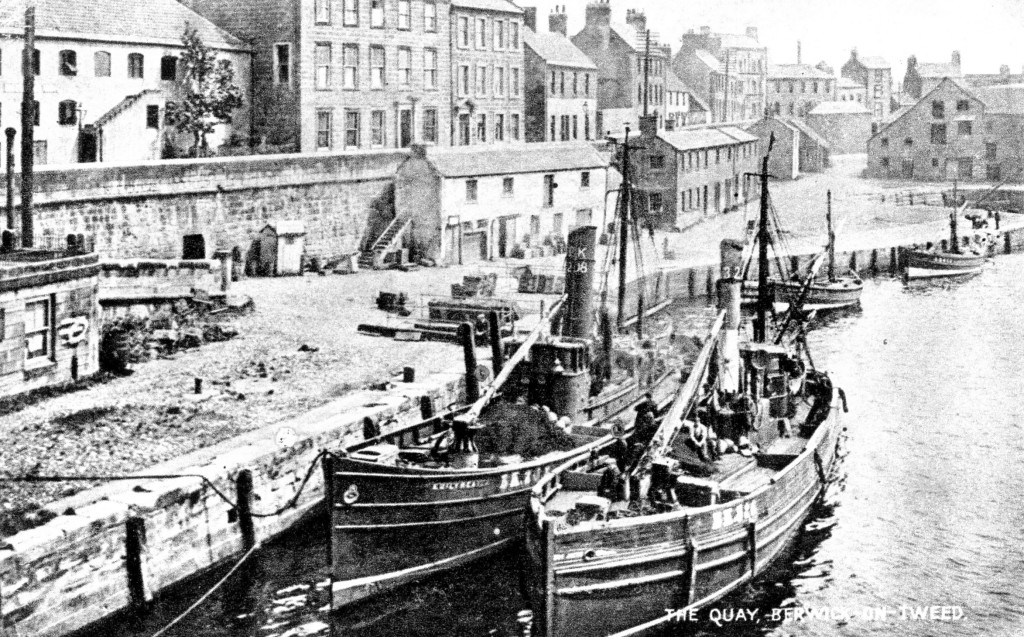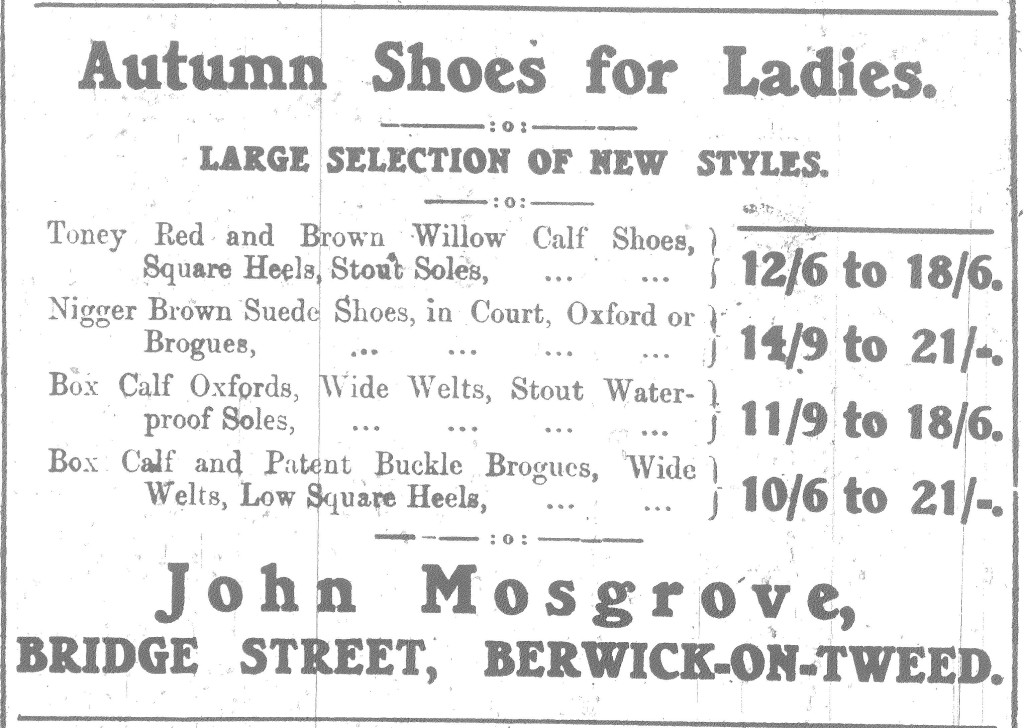BERWICK ADVERTISER, 22 OCTOBER 1915
LITTLE GIRL DROWNED AT BERWICK
A Sad Story at the New Road
Borough Coroner Wm. Weatherhead and a jury held an enquiry in the Town Hall, Berwick on Wednesday afternoon into the circumstances attending the death of Lilian Thomson, three years of age, daughter of William Thomson, licensed victualler, Anglers’ Arms, Castlegate who was found drowned in the Tweed on Tuesday.
William Thomson, father of deceased, deponed that the child was in the habit of going out by itself. She was generally accompanied by a little dog- a terrier. He never heard of her wandering down to the New Road before the body was brought home about 12.30 on Tuesday afternoon.
Joseph Payne, 47 West Street, message boy with Mr Shiel Dods, butcher, deponed that he knew the deceased girl. He saw her above Scotsgate about ten minutes to eleven in the forenoon on Tuesday near the drinking fountain. She had a little black and white dog with her. She held out her hand to him, and he gave her a piece of apple to give to the dog. Witness told her to go home. He could not make out what she said, but she came down the street and turned into the road leading to Bankhill, the dog being with her.
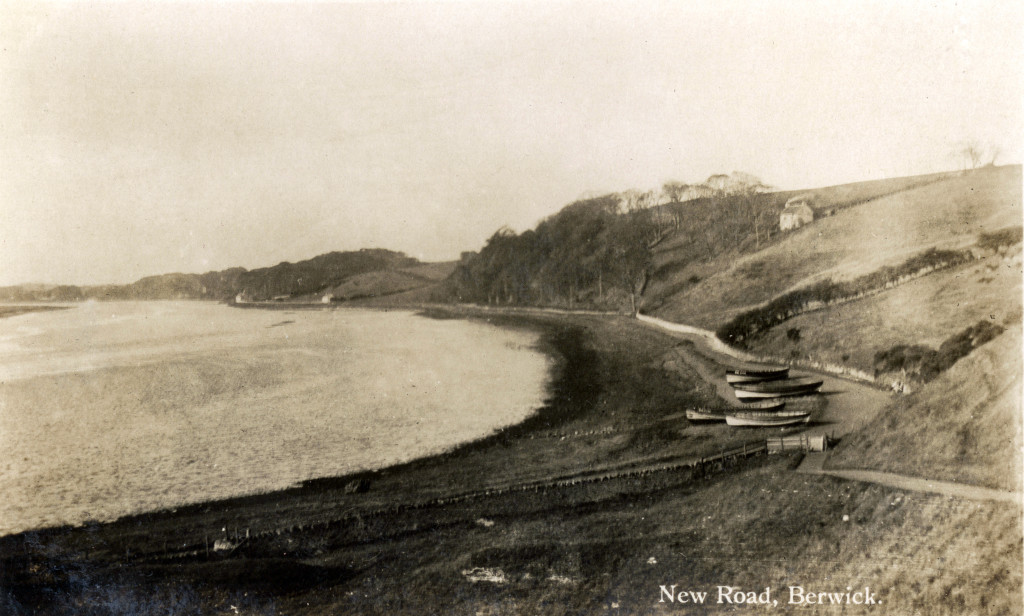
James Handeyside, retired engine driver, deponed he was walking on the New Road with Mr David Leggat on Tuesday forenoon. They were walking very slowly, and when near the Conqueror’s Well he noticed, near the steps leading to the shore what he thought to be a bladder floating in the water. He stopped and remarked the circumstances to his companion, Mr Leggat. He went forward to the edge of the water, and thought he saw a leg of a child, but he could not see the head. The tide was about full. He too off his topcoat and hat, went down the steps, and waded into the water fetching the body out. A woman assisted him to take the body up the steps as he was afraid of slipping. The body when he first saw it was about fourteen feet past the steps, near to the boathouse. When going down the steps he observed the child’s shoes and stockings.
By the father – he took the body out in two minutes from the time of first observing it.
Witness further stated that he saw the little white dog afterwards.
Mr Leggat corroborated, and said he proceeded to Dr Taylor’s house immediately for medical assistance.
Dr John Taylor said he was called upon about ten minutes to twelve, and went to the New
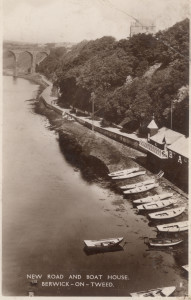
Road. He saw the body at the steps already mentioned. It was lying on the grass at the side of the roadway. He examined it. There did not appear to be any bruises. The mouth and nose were full of froth, and life was quite extinct. He saw the little dog, which was wet up to the shoulders.
In answer to the father he said no amount of rubbing would have restored life as the child was dead, and was so before he arrived.
In answer to the jury, Mr Handeyside said he made efforts to restore animation, and did what he could to expel the water from the lungs. He had in early life received lessons in first-aid.
The Coroner said it was manifest that the child had been a considerable time in the water before it was observed, as it had floated down the stream a bit. It was a very sad case. It was conjectural that the child had taken of its boots to wash the dog.
The jury returned a verdict in accordance with the evidence.
BILLIARDS MATCH AT FORD
A team of six chosen from the soldiers at Etal Manor Red Cross Hospital “fought an engagement” with a team from the members of the Ford Reading Room on the afternoon of Saturday, 16th October. The Ford men having the advantage of “ground” carried off the honours of the day by 120 points. The victors then proceeded to treat their opponents to most generous hospitality. For an invitation had been given to all the soldiers (26) at Manor to be the guests at tea, of the following members Messrs W. Gray, W.P. Calder, J. H. Binks, W. Glass, Russell, Smith, Steel, Waters. During the afternoon whist was indulged in by the non-players The Hon. Secretary announced before the close of play that in the future all the soldiers at the Manor were to consider themselves hon. members of the Ford Reading Room. For this privilege our thanks are due to Lord Joicey, Bishop Neligan, and all the members of the Reading Room. Due to the kindness of the Committee a match was played a short time ago at Ford, between the soldiers and a team from Wooler. On that occasion the Right Rev. Bishop Neligan kindly provided tea for all the soldiers.
Etal Ford
Pte. Glossop 49 W. Glass 100
Pte. Swinbourne 47 W. P. Calder 100
Sgt. Sly 100 Mr Russell 73
Pte. Squires 100 H. Sanderson 87
Pte. Ramsley 59 J. Waters 100
Pte. Carlton 85 J.H. Binks 100
HARVEST THANKSGIVING
On Thursday evening a harvest thanks-giving service was held in the Kiln Hill Mitchell Memorial Hall, Tweedmouth. The hall was crowded, the platform being tastefully decorated with fruit and flowers. Addresses were given by Messrs McBain and Caldwell. Solos were sung by the Sisters of the Faith Mission, and by the choir, under the leadership of Mr Anderson. Mr Mark Anderson presided at the organ.
SUGGESTION FOR SOLDIERS ARRIVING AT BERWICK STATION
Sir, – I have seen a letter from the front, written by one of our Territorials in which the following passage occurs – “You might keep me going now in shirts and socks – thick warm ones of both. We do a lot of night work now, and it’s very cold o’ nights here, and besides we often get wet feet. “
The writer of that letter will now have received his first shirts and socks from home, but – here is one of the reasons of your being troubled with this letter – there must be many of our lads at the front who need them as much, but who cannot get them. Can nothing be done to supply their urgent needs by those at home who are comfortable and safe throught the sacrifices of these lads?
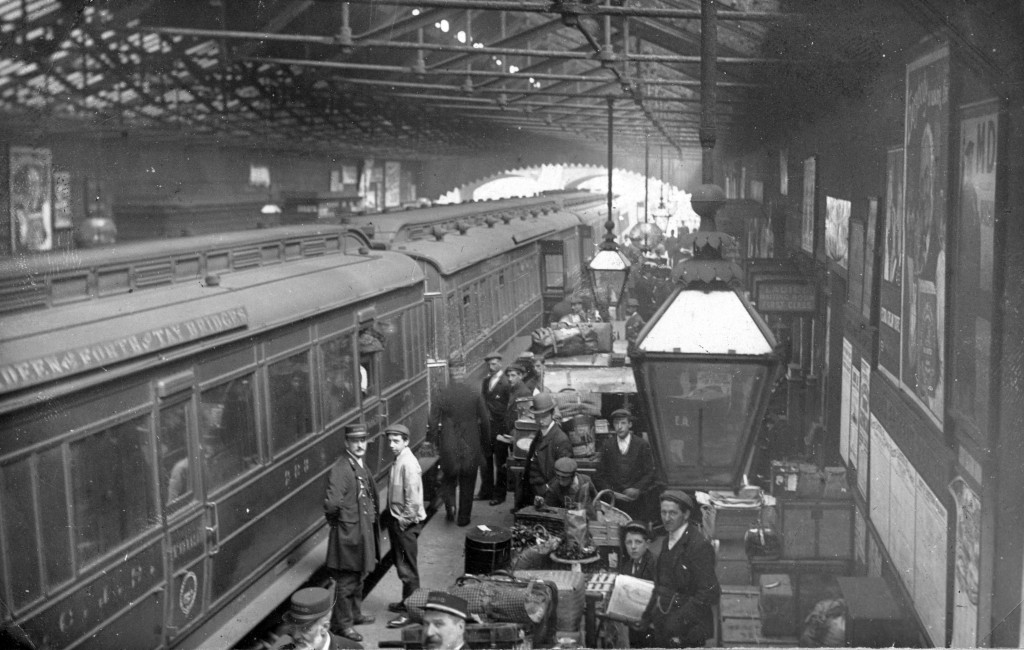
Another matter occurs to me as requiring attention. I am told that nearly every morning soldiers arrive at Berwick Station by the 4.30 train. Is it the wish of the people of Berwick that these men, who have come forward to fight for US, should hang about Berwick Station for a few hours on these cold, bleak mornings without a cup of tea or coffee and a bite to eat? I don’t think so Mr Editor. I am inclined to think better of Berwick people than that, and some way of managing it can surely be found if we are willing to pay for it.
Hoping something may be done and that right soon,
I am, yours, etc.,
BERWICUS


